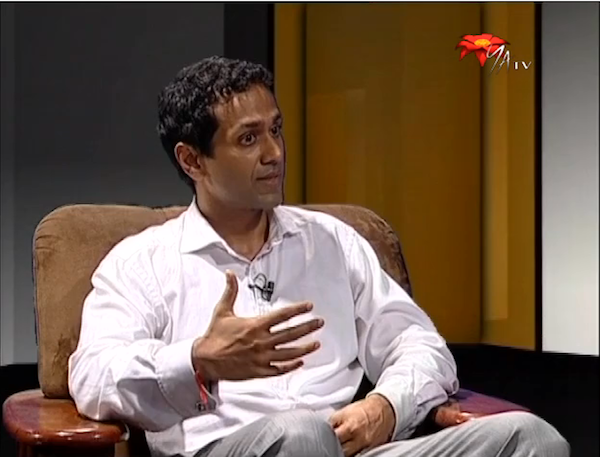
Priyanga Hettiarachi is the director and founder of RightsBusiness, founded after Priyanga’s return to Sri Lanka after a number of years working in Australia, The Netherlands and England. Given Priyanga’s award-winning work and experience, we begin our conversation around why he chose to come back to Sri Lanka, post-war.
Given how loaded and contested a term human-rights is in Sri Lanka, Priyanga goes into how and why businesses in Sri Lanka are engaging with rights based processes and thinking. Priyanga notes that the concerns around human rights and large corporations, particularly multinational corporations, isn’t new, and goes into the history of how the United Nations and other bodies have sought to embrace business in human rights discourse and standards.
One of the instruments by the UN, Global Compact, is non-binding in nature, leading to the criticism that business say more than they really do to improve human rights, merely to be associated with the UN’s initiative. Priyanga addresses this point, thirteen years after it was launched in January 2000.
Flagging initiatives like Sri Lanka First and the Business for Peace Alliance, which were formed during the time of the Ceasefire Agreement in Sri Lanka but no longer exist, or exist in the same form that they began with, Priyanga addresses how much the leading businesses in Sri Lanka are aware of, and embrace human rights in their corporate culture, CSR as well as business processes, especially post-war. Priyanga notes that though some businesses are more progressive than others, there is room for improvement.
Peace through profit: Sri Lankan Perspectives on Corporate Social Responsibility, published in 2005, flagged what at the time a greater interest in human rights by Small and Medium Enterprises (SMEs) in the North and East compared to those in the South. Priyanga is asked whether this trend continues even post-war.
He then goes on to address the concern that a business, interested in and indeed, built around the generation of greater profit and value to its owners and shareholders, in embracing human rights, could end up with increased costs. This was a point also flagged in the first annual United Nations Forum on Business and Human Rights, held in December 2012, where Priyanga was present.
Priyanga looks the global marketplace, and how consumers in developed economies are increasingly demanding products and services that don’t violate human rights, plus the standards and guidelines that are coming about to ensure corporate compliance and certification in this regard. He also looks at how consumers anywhere in the world, along with competition, can be key drivers in pushing business to be more compliant with human rights norms and standards.
Given the vexed nature of the challenge, Priyanga goes into two key things a business can do to improve its human rights compliance and awareness – the development of a human rights policy and subjecting what he terms ‘sensitive operations’ to a human rights audit or review.
Given Priyanga’s award-winning work in Australia, he is asked for what he sees as the fundamental differences between businesses in Australia and those in Sri Lanka in embracing human rights, and how corporates here can learn from more developed models elsewhere in the world. Looking at the UK’s Trade and Investment Website, which notes that companies may be complicit in human rights abuses even where they are not the direct result of their own action, Priyanga looks at the real costs of non-compliance, and going about business as usual no matter what the human rights implications.
We end the conversation on whether what Priyanga encourages businesses to do is still a niche market of its own, or whether there is strong and growing interest amongst corporates, both locally and globally, in human rights.

